Searching for the ultimate solution to maintain a pristine Oscar tank?
Look no further! In this comprehensive guide, we’ve shared the best cleaner fish for Oscar tanks.
That will help you ensure your aquatic ecosystem remains vibrant and healthy.
Let’s dive in!
1. Plecostomus (Plecos)
Plecos are big fish that are good at eating algae in tanks. They help keep the tank clean.
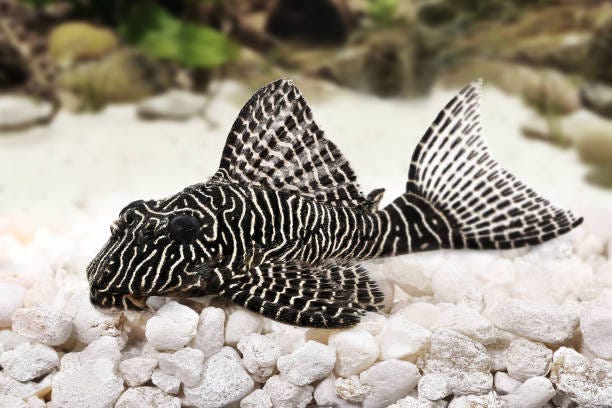
Why Plecostomus (Plecos):
Effective Algae Control:
Plecostomus, also known as Plecos, are widely favored for their remarkable ability to control algae growth in aquariums.
Their voracious appetite for algae helps keep the tank glass, decorations, and even plants clean.
Large Size:
One of the appealing aspects of Plecos is their substantial size, which makes them efficient cleaners for larger tanks, including those housing Oscars.
Their size allows them to cover more surface area and consume a significant amount of algae.
Peaceful Nature:
Plecos are generally peaceful fish, which means they are unlikely to cause any conflicts with Oscars or other tank mates.
Their calm demeanor makes them suitable companions for the often aggressive Oscar fish.
Hardy and Easy to Care For:
These fish are hardy and can adapt to a wide range of water conditions, making them suitable for beginner aquarists.
They are relatively low-maintenance and can thrive in various tank setups.
Availability:
Plecos are readily available in most pet stores and online retailers, making them easily accessible to hobbyists looking to add them to their aquariums.
Compatibility:
Despite their large size, Plecos are compatible with Oscars as long as the tank is spacious enough to accommodate both species.
With proper tank dimensions and hiding spots, Plecos can coexist harmoniously with Oscars.
Overall Cleaning Abilities:
In addition to algae control, Plecos are also proficient in consuming leftover food and other organic debris, contributing to the overall cleanliness of the aquarium environment.
2. Bristlenose Plecos
Bristlenose Plecos are smaller than regular Plecos but still great at eating algae. They’re good for smaller tanks
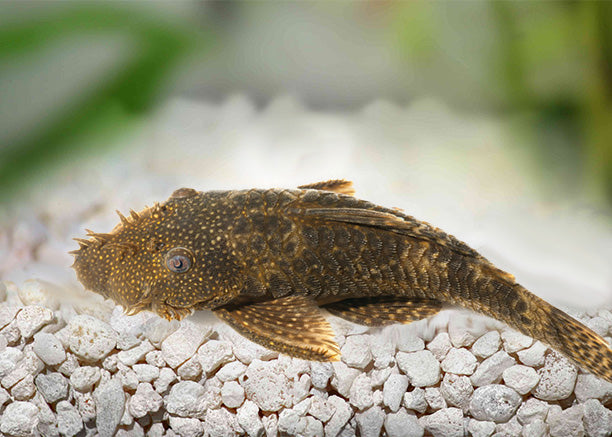
Why Bristlenose Plecos:
Efficient Algae Control:
Bristlenose Plecos are renowned for their exceptional ability to combat algae growth in aquariums.
Their voracious appetite for algae helps keep the tank glass, decorations, and substrate clean.
Compact Size:
One of the key advantages of Bristlenose Plecos is their relatively small size compared to other Pleco species.
This makes them suitable for tanks of various sizes, including those with limited space, while still offering effective algae control.
Peaceful Temperament:
Bristlenose Plecos possess a gentle and peaceful nature, making them ideal tank mates for Oscars and other fish species.
Their calm demeanor reduces the likelihood of conflicts or aggression within the aquarium.
Compatibility:
These Plecos are well-suited for cohabitation with Oscars, provided the tank is spacious enough to accommodate both species.
Their smaller size and non-aggressive behavior make them compatible companions for Oscars.
Hardy and Low-Maintenance:
Bristlenose Plecos are hardy fish that can adapt to various water conditions, making them suitable for beginner aquarists.
They require minimal care and can thrive in a well-maintained aquarium environment.
Availability:
Bristlenose Plecos are readily available in most pet stores and online retailers, making them easily accessible to hobbyists looking to add them to their aquariums.
Unique Appearance:
With their distinctive bristle-like protrusions on their heads, Bristlenose Plecos add visual interest to the tank.
Their unique appearance makes them a popular choice among aquarists seeking an attractive and functional addition to their aquarium.
3. Corydoras Catfish
Corydoras Catfish are small fish that clean the bottom of the tank by eating leftover food and debris. They’re friendly and peaceful.
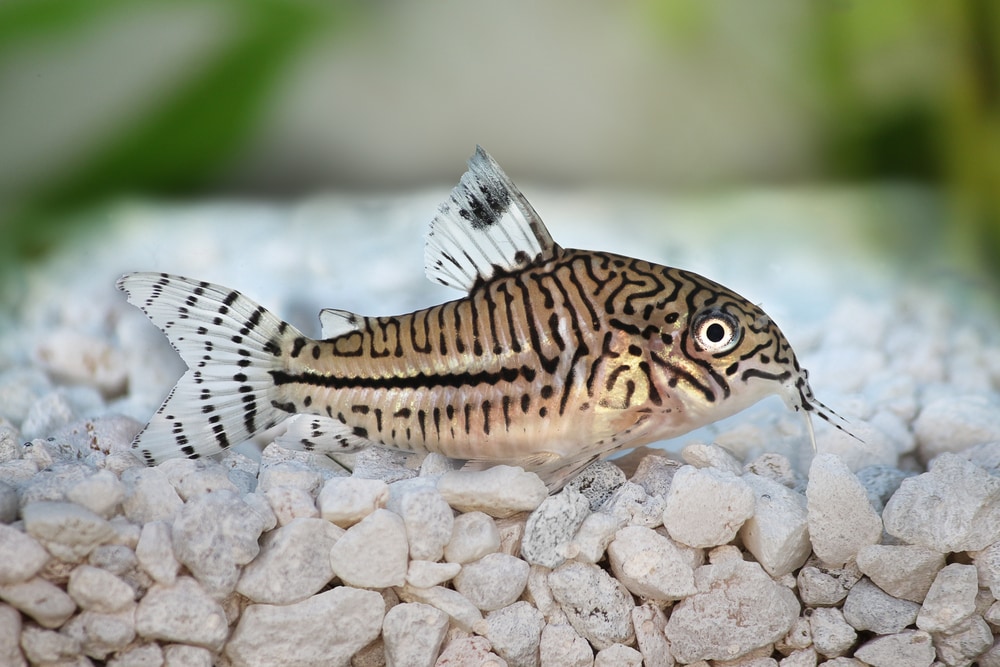
Why Corydoras Catfish:
Effective Bottom Cleaners:
Corydoras Catfish are highly efficient bottom-dwelling cleaners, helping to keep the substrate clean by scavenging uneaten food and debris.
Their constant foraging behavior contributes to maintaining a tidy tank environment.
Peaceful Nature:
One of the key advantages of Corydoras Catfish is their peaceful temperament.
They are unlikely to exhibit aggressive behavior towards other tank mates, including Oscars, making them suitable companions for community tanks.
Compatibility:
Corydoras Catfish are compatible with Oscars as long as the tank is spacious enough to accommodate both species.
Their non-aggressive nature and bottom-dwelling habits make them well-suited for cohabitation with larger fish like Oscars.
Active and Entertaining:
These catfish are active swimmers and can add liveliness to the lower levels of the aquarium.
Their constant movement and social interactions with their own kind can provide visual interest for aquarium enthusiasts.
Hardy and Easy to Care For:
Corydoras Catfish are hardy fish that can tolerate a range of water conditions, making them suitable for beginner aquarists.
They require minimal care and can adapt well to various tank setups.
Schooling Behavior:
Corydoras Catfish thrive in groups, so keeping them in a small school of at least six individuals is recommended.
Their schooling behavior not only promotes their well-being but also enhances the aesthetic appeal of the tank.
Wide Variety of Species:
There are numerous species of Corydoras Catfish available in the aquarium trade, offering hobbyists a wide selection to choose from based on their preferences for size, coloration, and pattern.
4. Siamese Algae Eaters
These fish are expert algae-eaters. They can keep the tank glass and decorations free from algae.

Why Corydoras Catfish:
Effective Bottom Cleaners:
Corydoras Catfish are highly efficient bottom-dwelling cleaners, helping to keep the substrate clean by scavenging uneaten food and debris.
Their constant foraging behavior contributes to maintaining a tidy tank environment.
Peaceful Nature:
One of the key advantages of Corydoras Catfish is their peaceful temperament.
They are unlikely to exhibit aggressive behavior towards other tank mates, including Oscars, making them suitable companions for community tanks.
Compatibility:
Corydoras Catfish are compatible with Oscars as long as the tank is spacious enough to accommodate both species.
Their non-aggressive nature and bottom-dwelling habits make them well-suited for cohabitation with larger fish like Oscars.
Active and Entertaining:
These catfish are active swimmers and can add liveliness to the lower levels of the aquarium.
Their constant movement and social interactions with their own kind can provide visual interest for aquarium enthusiasts.
Hardy and Easy to Care For:
Corydoras Catfish are hardy fish that can tolerate a range of water conditions, making them suitable for beginner aquarists.
They require minimal care and can adapt well to various tank setups.
Schooling Behavior:
Corydoras Catfish thrive in groups, so keeping them in a small school of at least six individuals is recommended.
Their schooling behavior not only promotes their well-being but also enhances the aesthetic appeal of the tank.
Wide Variety of Species:
There are numerous species of Corydoras Catfish available in the aquarium trade, offering hobbyists a wide selection to choose from based on their preferences for size, coloration, and pattern.
5. Otocinclus Catfish
Otocinclus Catfish are tiny but helpful cleaners. They eat algae and keep the tank neat and tidy.
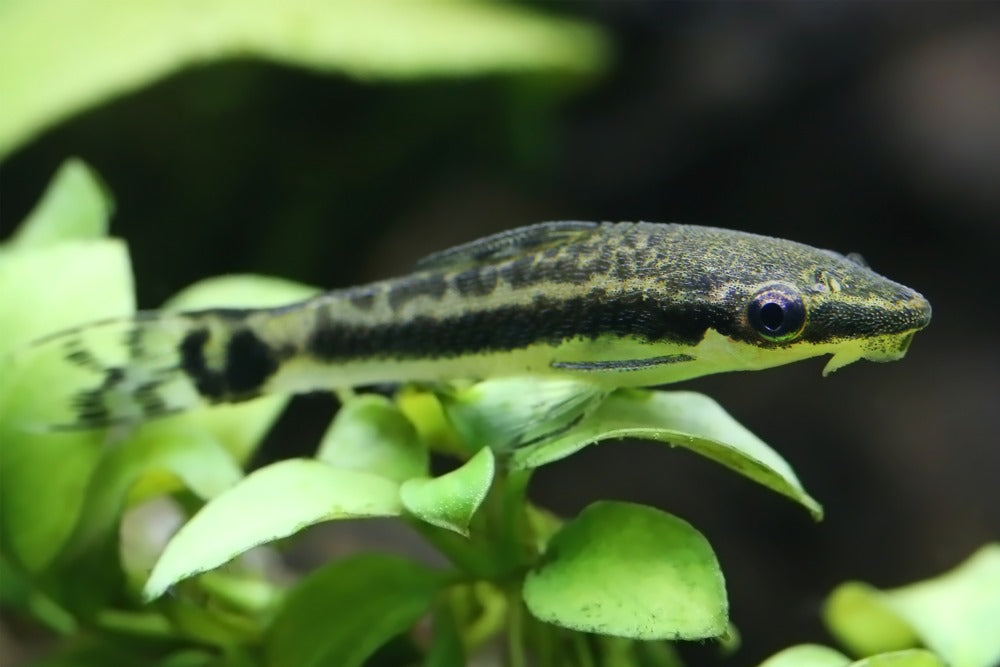
Why Otocinclus Catfish:
Efficient Algae Eaters:
Otocinclus Catfish are renowned for their exceptional ability to consume algae in aquariums, particularly on glass surfaces and plant leaves.
Their voracious appetite for algae helps maintain a clean and pristine tank environment.
Small Size:
One of the key advantages of Otocinclus Catfish is their small size, making them suitable for tanks of various sizes, including smaller setups.
Their compact size allows them to navigate easily through tight spaces and reach algae in hard-to-reach areas.
Peaceful Nature:
Otocinclus Catfish possess a gentle and peaceful temperament, making them ideal tank mates for Oscars and other fish species.
Their calm demeanor reduces the likelihood of conflicts or aggression within the aquarium.
Compatibility:
These catfish are compatible with Oscars as long as the tank is spacious enough to accommodate both species.
Their non-aggressive behavior and bottom-dwelling habits make them well-suited for cohabitation with larger fish like Oscars.
Active Behavior:
Despite their small size, Otocinclus Catfish are active swimmers and constantly graze on algae throughout the tank.
Their lively behavior adds movement and activity to the lower levels of the aquarium.
Schooling Behavior:
Otocinclus Catfish thrive in groups, so keeping them in a small school of at least six individuals is recommended.
Their schooling behavior promotes their well-being and creates a visually appealing display in the aquarium.
Hardy and Low-Maintenance:
These catfish are hardy fish that can tolerate a range of water conditions, making them suitable for beginner aquarists.
They require minimal care and can adapt well to various tank setups.
6. Chinese Algae Eater (Gyrinocheilus aymonieri)
Chinese Algae Eaters eat algae when they’re young, but they might become bossy and aggressive as they grow older. They’re not always the best choice for a tank with other fish.
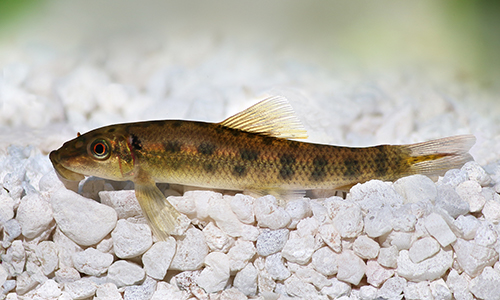
Why Chinese Algae Eater:
Algae Control Abilities:
Chinese Algae Eaters are known for their initial effectiveness in controlling algae growth in aquariums, including stubborn types like black beard algae.
They can help keep the tank clean by consuming algae from various surfaces.
Large Size Potential:
One advantage of Chinese Algae Eaters is their potential to grow relatively large, which can make them efficient cleaners for larger tanks.
However, their growth can also pose challenges in smaller aquariums and may require upgrading to larger tanks over time.
Aggressive Behavior:
One significant drawback of Chinese Algae Eaters is their potential for aggression as they mature.
They may become territorial and harass other tank mates, including Oscars, especially if they perceive them as competition for food or territory.
Compatibility Concerns:
Due to their aggressive tendencies, Chinese Algae Eaters may not be suitable tank mates for Oscars or other peaceful fish species.
Their behavior can lead to stress and potential harm to other inhabitants of the aquarium.
Limited Long-Term Effectiveness:
While Chinese Algae Eaters are effective at consuming algae initially, their algae-eating behavior may decrease as they age.
Additionally, they may shift their diet to other foods, such as fish flakes or pellets, instead of solely relying on algae as they mature.
Need for Vigilant Monitoring:
Aquarists considering Chinese Algae Eaters should be prepared to monitor their behavior closely and be ready to rehome them if aggression becomes a problem.
It’s essential to provide them with ample hiding places and territories to minimize conflicts in the tank.
Consideration of Alternatives:
Given the potential challenges associated with Chinese Algae Eaters, aquarists may want to explore alternative cleaner fish options that offer effective algae control without the risk of aggression and compatibility issues.
7. Amano Shrimp
Amano Shrimp are small, peaceful creatures that eat algae and keep the tank clean. They’re good companions for other fish.
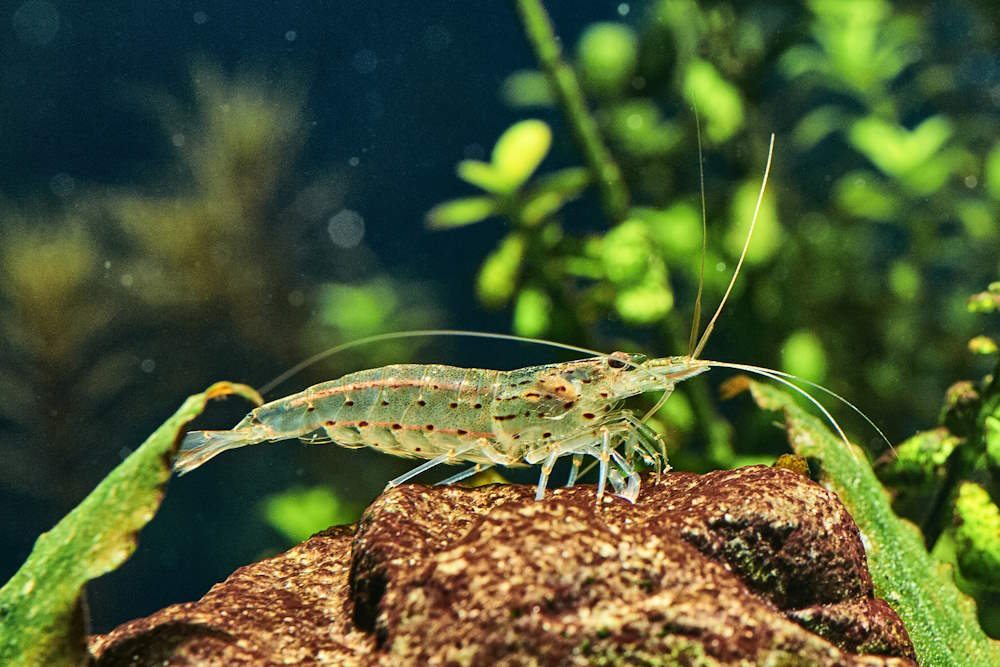
Why Amano Shrimp:
Effective Algae Control:
Amano Shrimp are highly efficient algae eaters, helping to keep the tank clean by consuming various types of algae, including green algae, brown algae, and even algae film on glass surfaces.
Peaceful Nature:
One of the key advantages of Amano Shrimp is their peaceful temperament.
They are peaceful creatures that are unlikely to exhibit aggression towards other tank mates, including Oscars, making them suitable companions for community tanks.
Compatibility:
Amano Shrimp are compatible with Oscars as long as the tank is spacious enough to accommodate both species.
Their small size and non-aggressive behavior make them well-suited for cohabitation with larger fish like Oscars.
Detritus Cleaners:
In addition to consuming algae, Amano Shrimp are efficient scavengers that help clean up leftover food and organic debris from the substrate.
Their constant foraging behavior contributes to maintaining a clean and healthy tank environment.
Low Maintenance:
Amano Shrimp are relatively low-maintenance creatures that can thrive in a well-established aquarium with stable water parameters.
They require minimal care and can adapt well to various tank setups.
Hardy and Resilient:
These shrimp are hardy and can tolerate a range of water conditions, making them suitable for beginner aquarists.
They are resilient creatures that can withstand fluctuations in water parameters to some extent.
Interesting Behavior:
Amano Shrimp are active and engaging creatures to observe in the aquarium.
Their constant movement and social interactions with their own kind can provide visual interest and entertainment for aquarium enthusiasts.
8. Nerite Snails
Nerite Snails are small snails that eat algae and keep the tank glass and decorations clean. They’re easy to care for and won’t make lots of baby snails in your tank.

Why Nerite Snails:
Efficient Algae Control:
Nerite Snails are highly effective algae eaters, helping to keep the tank clean by consuming various types of algae, including green algae, diatoms, and algae film on glass surfaces and decorations.
Non-Invasive Reproduction:
One of the key advantages of Nerite Snails is their non-invasive reproductive behavior.
Unlike some other snail species, Nerite Snails do not reproduce in freshwater aquariums, minimizing the risk of population explosions.
Peaceful Nature:
Nerite Snails are peaceful creatures that are unlikely to exhibit aggression towards other tank mates, including Oscars.
Their calm demeanor makes them suitable companions for community tanks.
Compatibility:
Nerite Snails are compatible with Oscars as long as the tank is spacious enough to accommodate both species.
Their small size and non-aggressive behavior make them well-suited for cohabitation with larger fish like Oscars.
Unique Appearance:
These snails come in various colors and patterns, adding visual interest to the tank.
Their unique shell designs can enhance the aesthetic appeal of the aquarium and create an attractive underwater landscape.
Low Maintenance:
Nerite Snails are relatively low-maintenance creatures that can thrive in a well-established aquarium with stable water parameters.
They require minimal care and can adapt well to various tank setups.
Hardy and Resilient:
These snails are hardy and can tolerate a range of water conditions, making them suitable for beginner aquarists.
They are resilient creatures that can withstand fluctuations in water parameters to some extent.









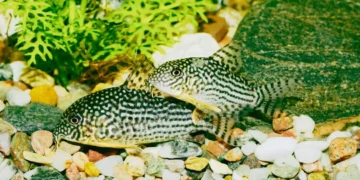

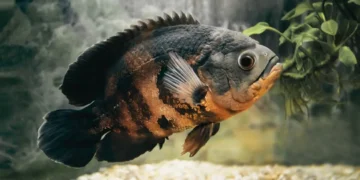


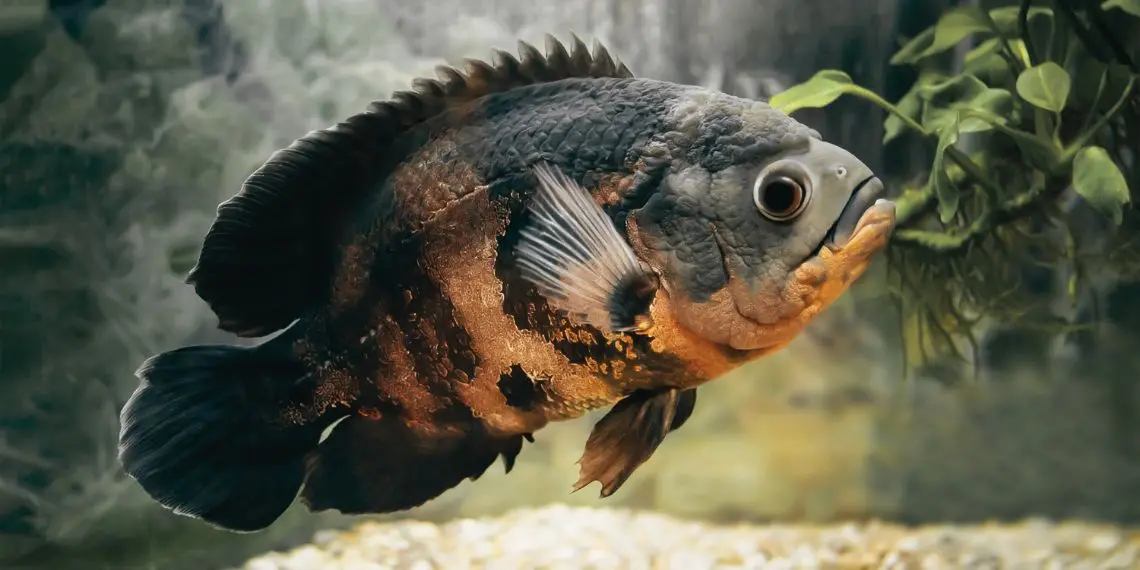










C444gameapk is legit! Downloaded the app and it runs smooth. Gameplay’s solid and graphics are decent. Easy to get into. Maybe needs more games, but worth a download. Get hooked: c444gameapk
I’ve been playing on malinacasino6 for a while now, and it’s pretty solid. They have some nice bonuses, and the support is responsive! You should check! You may start here: malinacasino6
Dailyjili Casino Philippines: Best Online Slots, Quick Dailyjili Login & Register. Get the Dailyjili App Download for Premium Gaming Action. Join Dailyjili Casino Philippines! Experience fast dailyjili login & register for top dailyjili slot games. Get the dailyjili app download for premium gaming at dailyjili casino today. visit: dailyjili
[5338]PHDream33: Top Philippines Online Casino. Quick PHDream33 Login, Register, and App Download for the Best Slot Games. Join PHDream33, the top Philippines online casino. Easy PHDream33 login, register, and app download for the best PHDream33 slot and casino games. Play and win now! visit: phdream33
[6522]789taya Online Casino Philippines: Register & Login for Top Slots and App Download Experience the best at 789taya Online Casino Philippines! Enjoy premium 789taya slot games. 789taya register & login now for big wins. Get the 789taya app download today! visit: 789taya
[1339]jljl888 Casino Philippines: Easy jljl888 Login & Register for Top jljl888 Slot Games. Download jljl888 App Now! Join jljl888 Casino Philippines today! Experience easy jljl888 login and register access to play top-rated jljl888 slot games. Secure your jljl888 download now for the best mobile gaming experience and start winning at the Philippines’ premier online casino! visit: jljl888
[8963]jililph app|jililph slots|jililph register|jililph giris|jililph download Experience the ultimate gaming thrill at jililph, the premier online casino in the Philippines. Play the latest jililph slots, complete your jililph register to claim exclusive bonuses, and enjoy seamless mobile gaming with a quick jililph download. Access the jililph app today via secure jililph giris login and start winning big! visit: jililph
[846]bybet app|bybet register|bybet slots|bybet giris|bybet casino Join Bybet, the premier online casino in the Philippines! Complete your **Bybet register** today to play top-tier **Bybet slots**. Download the **Bybet app** for easy **Bybet giris** and enjoy a secure, world-class **Bybet casino** experience anytime, anywhere. visit: bybet
[756]qdf Casino Philippines: Best Online Slots, Easy Login, Register & App Download Experience top-tier gaming at qdf Casino Philippines! Discover the best qdf slot games with a seamless qdf login and quick qdf register process. Secure your qdf download today to enjoy premium online casino action and big wins anytime, anywhere. Join the #1 qdf casino platform in the Philippines now! visit: qdf
[9086]wow888 Online Casino PH: Fast wow888 Login, Register, & Best wow888 Slot. Download the wow888 App Today! Experience top-tier gaming at wow888 online casino PH. Access fast wow888 login, easy wow888 register, and the best wow888 slot games. Start your wow888 app download today for big wins! visit: wow888
[2579]PHJL Login & Register: Experience the Best PHJL Slot Casino in the Philippines. Fast PHJL Casino Login & Official PHJL App Download for Non-Stop Gaming! Join PHJL, the top PHJL slot casino in the Philippines! Experience fast PHJL casino login & easy PHJL register. Secure the official PHJL app download for non-stop gaming action today! visit: phjl
[941]Jili3 Official Casino Philippines: Register, Login, and App Download for the Best Slot Games. Join Jili3 Official Casino Philippines! Easy Jili3 register & Jili3 login to play top Jili3 slot games. Get the Jili3 app download for the best mobile experience today. visit: jili3
[905]PH9999 Online Casino Philippines: Login, Register, App Download & Top Slot Games Experience the ultimate PH9999 Online Casino Philippines! Secure ph9999 login, fast ph9999 register, and easy ph9999 app download. Play the best ph9999 slot games and win big today at the most trusted online casino in the PH. visit: ph9999
[6288]Pesomax Online Casino Philippines: Top Slot Games, Easy Register, Login & App Download. Experience Pesomax Online Casino Philippines! Enjoy top-rated Pesomax slot games with a quick Pesomax register and login process. Secure your Pesomax app download today for the best mobile gaming experience. Join the #1 online casino in the Philippines and start winning now! visit: pesomax
[343]22Win: The Best Online Casino in the Philippines. Quick 22Win Login & Register to Enjoy Premium 22Win Slot Games. Get the 22Win App Download Now! Join 22Win, the best online casino in the Philippines! Easy 22Win login & register for top 22Win slot games. Start winning & get the 22Win app download now! visit: 22Win
[3971]68jl register|68jl login|68jl giris|68jl casino|68jl download Experience the ultimate Philippines online gaming at 68jl. Complete your 68jl register to enjoy premium 68jl casino games, secure 68jl login, and big wins. 68jl download the app today for the best mobile gambling experience! visit: 68jl
[7572]Aaajili Casino Philippines: Official Aaajili Login, Register & App Download for Top Online Slots. Join Aaajili Casino Philippines for top aaajili slots! Fast aaajili login, easy aaajili register, and official aaajili app download. Experience the best aaajili casino games and win big today! visit: aaajili
[3441]777phl casino login|register|download visit: 777phl casino
[4172]gojackpot login|gojackpot register|gojackpot download|gojackpot casino|gojackpot slots Join Gojackpot, the premier online casino platform in the Philippines! Experience top-tier gaming with a quick gojackpot register and seamless gojackpot login. Discover a massive selection of gojackpot slots and classic gojackpot casino games. Use the gojackpot download feature to play on the go and start winning today! visit: gojackpot
[127]PITO777: Philippines’ Top Slot Gacor – Official Login, Register & App Download Link Alternatif Experience PITO777, the Philippines’ top slot gacor site. Fast PITO777 login & register. Get the PITO777 app download and latest link alternatif for non-stop winning! visit: PITO777
[9173]Milyon88 Casino: The Best Philippines Online Slots. Easy Milyon88 Login, Register, and App Download to Win Big Today! Join Milyon88 Casino for the best Philippines online slots! Quick Milyon88 login and register to play Milyon88 slot games. Get the Milyon88 app download and win big today! visit: milyon88
[516]PH123 Official Site: The Best PH123 Slot Online in the Philippines. Quick PH123 Register, Login, and PH123 App Download to Win Big Today! Visit the PH123 official site for the best PH123 slot online in the Philippines. Fast PH123 register, secure PH123 login, and PH123 app download to win big today! visit: ph123
[115]a777 Online Casino Philippines: The Best Legit Slots for Real Money and Easy GCash Payouts. Experience the ultimate gaming thrill at a777 Online Casino Philippines, the top destination for the best online slots PH. Secure your a777 legit casino login today to play exciting games for real money and enjoy the fastest online gambling GCash Philippines payouts. Join a777 casino real money for a safe, legit, and rewarding experience tailored for Filipino players. visit: a777
[1937]SolaireOnline Casino Philippines: Official Login, Register & App Download for Premium Slots Experience SolaireOnline Casino Philippines! Quick solaireonline login and register to play premium solaireonline slots. Get the official solaireonline app download for the best mobile casino gaming experience today. visit: solaireonline
[6244]EM777: The Best Slot Gacor in the Philippines – Easy Login, Register, and Download APK via Official Link Alternatif. Experience the best slot gacor in the Philippines at EM777! Enjoy easy em777 login, fast em777 register, and secure em777 download apk via our official em777 link alternatif. Start your winning journey with the most trusted online casino platform today. visit: em777
[3129]234win Official Site: Easy Login, Register & App Download for the Best Slot Online in the Philippines. Experience the best 234win slot online in the Philippines! Visit the 234win official site for fast 234win login, easy 234win register, and the 234win app download. Join now! visit: 234win
[3439]Kkkkph Casino Philippines: Top Slots & Online Gaming. Quick Kkkkph Login, Register Today, and Get the Kkkkph App Download for the Best Casino Experience. Experience Kkkkph Casino Philippines! Fast kkkkph login & kkkkph register to play top kkkkph slots. Get the kkkkph app download for the best mobile casino gaming today! visit: kkkkph
[4043]CC6 Online Casino Philippines: Experience top CC6 slot games. Quick CC6 login, easy register, and CC6 app download for premium gaming and big wins today! Join CC6 Online Casino Philippines today! Quick CC6 login and easy CC6 register to enjoy premium CC6 slot games. Secure CC6 app download for big wins on the go! visit: cc6
[3807]matejl Casino Philippines: Top Online Slots, Easy Login & Registration. Download matejl Today for the Ultimate Casino Experience! Experience matejl Casino Philippines! Enjoy easy matejl login & register for top matejl slot games. Start your matejl download today for the ultimate casino action. visit: matejl
[1975]8jl: Top Online Casino Philippines – 8jl Login, Register, & App Download for Best 8jl Slot Games Experience 8jl, the top online casino Philippines. 8jl register now for premium 8jl slot games. Easy 8jl login & 8jl app download for the best 8jl casino online action. Play & win today! visit: 8jl
[9681]Phfiery Online Casino Philippines: Best Phfiery Slot Games, Easy Login, Register & App Download. Experience the ultimate gaming at Phfiery Online Casino, the top choice for players in the Philippines! Enjoy the best Phfiery slot games with a fast Phfiery login and easy Phfiery register process. Secure your Phfiery app download today to play and win big anytime, anywhere. Join the Phfiery community now! visit: phfiery
[9580]sg777 Casino Philippines: Official sg777 Login, Register, & App Download for Premium Online sg777 Slot Games. Join sg777 Casino Philippines! Access the official sg777 login and register page for premium sg777 slot games. Get the sg777 app download for the ultimate sg777 casino experience today. visit: sg777
[4058]Phswerte99 Online Casino Philippines: Top Slot Games, Easy Login, Register & App Download for the Best Gaming Experience. Join Phswerte99 Online Casino, the Philippines’ premier hub for top-tier Phswerte99 slot games. Secure your Phswerte99 login, register today, or get the Phswerte99 app download for the ultimate mobile gaming experience and big wins! visit: phswerte99
[4329]SSBET777 Online Casino Philippines: Easy Login, Register, & App Download for the Best Slot Games. Join SSBET777 Online Casino Philippines! Fast ssbet777 login & register to play the best ssbet777 slot games. Get the ssbet777 app download and win big today! visit: ssbet777
[1905]vip777 app|vip777 login|vip777 download|vip777 slots|vip777 giris Experience the ultimate gaming at vip777, the Philippines’ top online casino. Access premium vip777 slots, secure vip777 login, and easy vip777 giris. Get the vip777 app today via the official vip777 download for non-stop action and big wins! visit: vip777
[8550]jljl55 casino|jljl55 register|jljl55 slots|jljl55 login|jljl55 download Welcome to jljl55 casino, the premier online gaming destination in the Philippines. Quick jljl55 register and jljl55 login to enjoy massive rewards on jljl55 slots. Secure your jljl55 download today for the best mobile casino experience and start winning real prizes! visit: jljl55
[1385]Xojili Online Casino Philippines: Easy Login, Quick Register & App Download for the Best Slot Games. Experience Xojili Online Casino Philippines! Enjoy easy xojili login, quick xojili register, and premium xojili slot games. Get the xojili app download now for the best mobile gaming and big wins today! visit: xojili
[9511]Nustargame Official Site: Top Slots in the Philippines. Login, Register, and App Download Now! Welcome to Nustargame Official Site, the home of top slots in the Philippines. Quick nustargame login and register. Get the nustargame app download to play now! visit: nustargame
[7742]AceSuper Login & Register: The Best Online Slots and Casino App Download in the Philippines. Join AceSuper, the premier online slots destination in the Philippines! Quick AceSuper login & register access. Get the AceSuper app download for a seamless casino login experience and big wins today. visit: acesuper
[7285]007jl Login & Register: Best Online Casino Slots in the Philippines | Download the 007jl App Today Experience the best online casino in the Philippines at 007jl! Complete your 007jl login or 007jl register to play premium 007jl slot games. 007jl download the app today for big wins on the go! visit: 007jl
[7776]JL3 Online Casino Philippines: Official Login, Register, Slot Games & App Download Experience the ultimate gaming at JL3 Online Casino Philippines! Access your jl3 login, complete a quick jl3 register, and play top jl3 slot games. Secure your jl3 app download now for big wins! visit: jl3
[7826]Nustar Online Casino: Secure Login, Easy Register, Premium Slot Games, and Official App Download for the Best Gaming Experience in the Philippines. Experience Nustar Online Casino, the premier gaming destination in the Philippines. Secure Nustar login, fast Nustar register, premium Nustar slot games, and official Nustar app download for a world-class experience. visit: nustar
[4143]Bigbunny Philippines: Experience Top Bigbunny Slots with Easy Login & Register. Get the Official Bigbunny App Download and Latest Link Alternatif Here. Experience top Bigbunny slots at Bigbunny Philippines. Easy Bigbunny login & register! Get the official Bigbunny app download and latest link alternatif today. visit: bigbunny
[8451]ah77 Login & Register: Top Online Slot Casino in the Philippines. Download Now & Get the Latest Link Alternatif. Join ah77, the #1 online slot casino in the Philippines. Easy ah77 login & register. Get the ah77 download and latest link alternatif to play top ah77 slot games now! visit: ah77
[540]bw29 register|bw29 download|bw29 login|bw29 giris|bw29 casino Experience the ultimate online gaming at bw29, the premier casino platform in the Philippines. Complete your bw29 register and bw29 login/giris today to access exclusive slots and live dealer games. Get the official bw29 download for mobile and enjoy seamless play anytime. Join bw29 casino for big wins and top-tier rewards! visit: bw29
[2637]55bmw Online Casino Philippines: Login, Register, Slot Games & Official App Download Join 55bmw Online Casino Philippines! Experience top-rated 55bmw slot games with secure 55bmw login and fast 55bmw register. Get the official 55bmw app download today and win big! visit: 55bmw
[370]25ph Casino Philippines: Top Online Slots, Easy Login, Register & App Download. Experience top online slots at 25ph Casino Philippines. Get secure 25ph login, fast 25ph register, and easy 25ph app download. Play the best 25ph slots and win big today! visit: 25ph
[1258]p898 Login & Register: Official Philippines Slot Gaming. Access p898 Download & p898 Link Alternatif for the Best Slot Experience. Join p898, the official Philippines slot gaming hub! Quick p898 login & p898 register. Access p898 download & p898 link alternatif for the ultimate p898 slot experience today. visit: p898
[3039]911jl Casino: The Best Online Casino Philippines with GCash. Secure Login & Fast App Download for Top Gaming. Experience the best online casino Philippines at 911jl casino. Secure your 911jl login today for premium gaming and seamless transactions with the top GCash online casino PH. Start winning now and get the 911jl app download for fast, secure access to your favorite games anytime, anywhere. visit: 911jl
[1411]fill777 Online Casino Philippines: Official Login, Register, and App Download for Premium Slot Games Join fill777 Online Casino Philippines! Secure fill777 login, easy register, and premium fill777 slot games. Get the fill777 download for mobile app. The #1 fill777 online casino! visit: fill777
[4433]WinADay Casino Philippines: Easy Login, Register & App Download for Premium Online Slots & Exclusive Bonus Codes. Join WinADay Casino Philippines for premium online slots! Experience easy WinADay casino login, quick register, & app download. Claim exclusive WinADay bonus codes today. visit: WinADay
[4228]9ph Online Casino: Fast 9ph Login, Register & App Download for the Best Philippines Slot Games. Experience the ultimate 9ph Online Casino! Enjoy fast 9ph login, easy 9ph register, and a secure 9ph app download for the best Philippines slot games. Join 9ph today! visit: 9ph
[1072]Arina Philippines: Official Arina Login & Register. Play Arina Slot Online, Download APK, and Access the Latest Arina Casino Link Today. Join Arina Philippines today! Access the official Arina login & register to play Arina slot online. Download the Arina APK and get the latest Arina casino link now. visit: arina
[3152]PH363 Online Casino: Top PH363 Slot, Easy Login & Register. Get the PH363 App Download for Philippines Players. Experience the ultimate gaming at PH363 Online Casino! Enjoy top-rated PH363 slot games with a seamless PH363 login and fast PH363 register process. Get the official PH363 app download for Philippines players and start winning today! visit: ph363
[7150]AmunRa Official Site: Experience AmunRa Slot Online, Easy AmunRa Casino Login, & AmunRa App Download. Register Now for the Best Gaming in the Philippines! Visit the AmunRa Official Site for the ultimate AmunRa Slot Online experience. Enjoy easy AmunRa Casino Login and fast AmunRa App Download. AmunRa Register Now for the best online casino gaming in the Philippines! visit: AmunRa
[7846]8jili Login: Top Philippines Slot Online & Casino. Fast 8jili Register & 8jili App Download for Easy Casino Login. Experience the best 8jili slot online in the Philippines! Fast 8jili register and 8jili login process. Get the official 8jili app download for an easy 8jili casino login and start winning today. Secure, fast, and reliable gaming. visit: 8jili
[5626]KKJILI Casino Philippines: Easy Login, Register & App Download for Top Online Slots. Experience the ultimate gaming at KKJILI Casino Philippines! Quick kkjili login and register to play top-rated kkjili slot games. Get the kkjili app download for seamless mobile casino action and start winning today. visit: kkjili
[8964]41jili Online Casino: Official Login, Register, & App Download for Best Philippines Slots Experience the best of 41jili Online Casino! Secure your 41jili login, complete your 41jili register, and play top Philippines 41jili slot games. Get the 41jili app download today for the ultimate mobile gaming experience and big wins. visit: 41jili
[5057]PHBuwenas Online Casino: Register and Login for Top Slot Games & Official App Download in the Philippines. Join PHBuwenas Online Casino! Easy phbuwenas login & phbuwenas register for top phbuwenas slot games. Fast phbuwenas app download available for the best gaming in the Philippines. visit: phbuwenas
[5316]999pub Online Casino Philippines: Login, Register, and App Download for the Best Slots Experience. Join 999pub Online Casino Philippines for the ultimate gaming experience! Access your 999pub login, complete a quick 999pub register, and get the 999pub app download to enjoy the best 999pub slots and big wins. Experience the top-rated 999pub online casino today! visit: 999pub
[2630]PHBET Online Casino Philippines: Register, Login & App Download for Top Slots Experience the best at PHBET Online Casino Philippines! Quick phbet register, easy phbet login, and phbet app download for top phbet slots. Play and win today! visit: phbet
[4666]777pinas: Top Philippines Online Casino – Register & Login to Play 777pinas Slot Games. Get the Official App Download Today! Join 777pinas, the top Philippines online casino! Register and login today to play premium 777pinas slot games. Get the official 777pinas app download and start winning now! visit: 777pinas
[4719]TJ777 Philippines: Top Online Slot Casino. Easy TJ777 Login, Register & App Download Link for Big Wins. Join TJ777 Philippines, the top online slot casino! Access easy TJ777 login, quick TJ777 register, and the official TJ777 download link to start winning big today. visit: tj777
AGENJITU303
adalah situs bandar toto dan slot gacor yang dianggap terpercaya di Indonesia,
menggunakan sistem enkripsi tingkat tinggi untuk menjamin
keamanan data penggunanya.